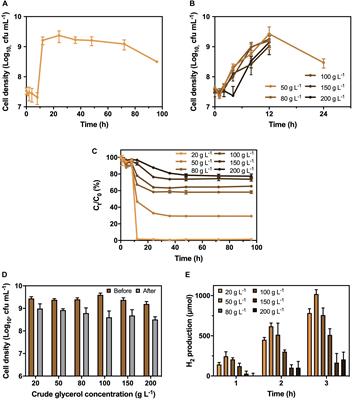ORIGINAL RESEARCH
Published on 04 May 2022
Changes in Alpine Soil Bacterial Communities With Altitude and Slopes at Mount Shergyla, Tibetan Plateau: Diversity, Structure, and Influencing Factors

doi 10.3389/fmicb.2022.839499
- 2,340 views
- 11 citations
4,859
Total downloads
20k
Total views and downloads
You will be redirected to our submission process.
ORIGINAL RESEARCH
Published on 04 May 2022

ORIGINAL RESEARCH
Published on 20 Jan 2022

ORIGINAL RESEARCH
Published on 26 Aug 2021

REVIEW
Published on 12 Aug 2021

ORIGINAL RESEARCH
Published on 08 Apr 2021

